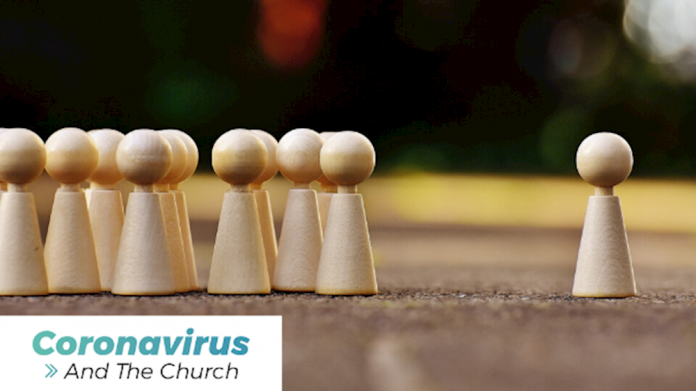Dr. Allen Yeh is Associate Professor of Intercultural Studies & Missiology at Biola University, Cook School of Intercultural Studies.
In the past couple of days, it feels like the coronavirus crisis has escalated to an unprecedented level. In reality, statistics of the spread have not changed that drastically. However, the response has generated some swift and drastic measures such as the NBA and NCAA sports being suspended, conferences being canceled, Disneyland and cruise ships closing, and universities shutting their campuses and moving all classes online for the rest of the semester.
This just happened with my university, and now all of us professors have a steep learning curve to transition to an entirely new platform mid-semester (many of us have never taught online before).
What is often lost in the midst of all this, however, is not just the left-brain, scientific, practical ways to handle the pandemic; it is the emotional intelligence side of all of this.
To continue with the university example, it is very easy for professors to get immersed in the logistics of how to suddenly learn to deliver online classes. But in the meanwhile, we may forget that our students are worried about things like losing their on-campus job, which leads to their inability to pay off their tuition, which means they might not graduate.
Being a good professor means that we not only become good deliverers of online content, but good shepherds of our students’ well-being. Ironically, teaching an online class actually requires us to be more pastoral than teaching in-person.
What is driving much of these drastic responses is emotions and fear.
Fear and emotions can be good things, as they are designed to protect us from things that may harm us (in fact, I do think that using the “sledgehammer to kill the fly” approach may actually be warranted right now to “flatten the curve” of the spread of the coronavirus—but that’s a whole other conversation).
But fear and emotions can also be drivers for unhelpful behaviors, such as panic and self-destruction. So, sometimes we need to actively fight against the way we’re biologically wired, because what is ‘natural’ is sometimes actually tainted by our sin nature.
One unfortunate side-effect of this global pandemic is racism. Rather than something like this bringing the world together to unite against a common enemy, it is easy to make some people the scapegoat; in this case, people of Asian descent.
True, the coronavirus originated in Wuhan, China, but the virus is not a discriminator of persons. Anyone could have it and anyone can transmit it. There have been documented cases (even captured on video and photos) of people spraying Febreeze on Asians in a New York subway to “disinfect” them; people posting memes (this even happened at my university) on social media of people making disgusted faces at Asians when they sneeze or cough; people avoiding Asian-owned businesses or restaurants; Dutch students wearing Chinese clothes and conical hats and pulling up the corners of their eyes, posing for a Instagram photo with a sign that read “Corona Time”; and the hashtag #kungflu trending; among many others.
“But for many people, having someone specific to blame, or an action specific to do, helps them make sense of this world or give them a sense of control, even if the fear is unwarranted or irrational. Take the hoarding of toilet paper, for example: while it does nothing to actually address the situation at hand (hand sanitizer or face masks make much more sense), it does hurt others.” Some of the positive pushback has been, for example, manufacture of buttons that say: “Wash your hands and don’t be racist.”
But more needs to be done. And we, as Christians, need to not only avoid discrimination, but we need to stem the tide of the racism, as much as cancellation of mass events is helping to quell the physical spread of the virus.
So what can Christians do?
First, there are two mantras that we can live by: you are the best advocate of a group if you are not part of it; and conversely, you are the best critic of a group if you are part of it.
Regarding the first principle, Jesus even said in Matthew 5:46-47, “If you love those who love you, what reward will you get? Are not even the tax collectors doing that? And if you greet only your own people, what are you doing more than others? Do not even pagans do that?”
We as Christians must demonstrate the radical love of Jesus, one that even exceeds that of non-Christians. If you can support groups that you do not have vested interest in, that will cause the secular world to sit up and take notice. “America first” or “my own race first” is not living out the Parable of the Good Samaritan, where Jesus defined our neighbor as the one who is most hated. In times of fear, take this as an opportunity to defend and support those who are most targeted and marginalized.
Source: Christianity Today
All Content & Images are provided by the acknowledged source
